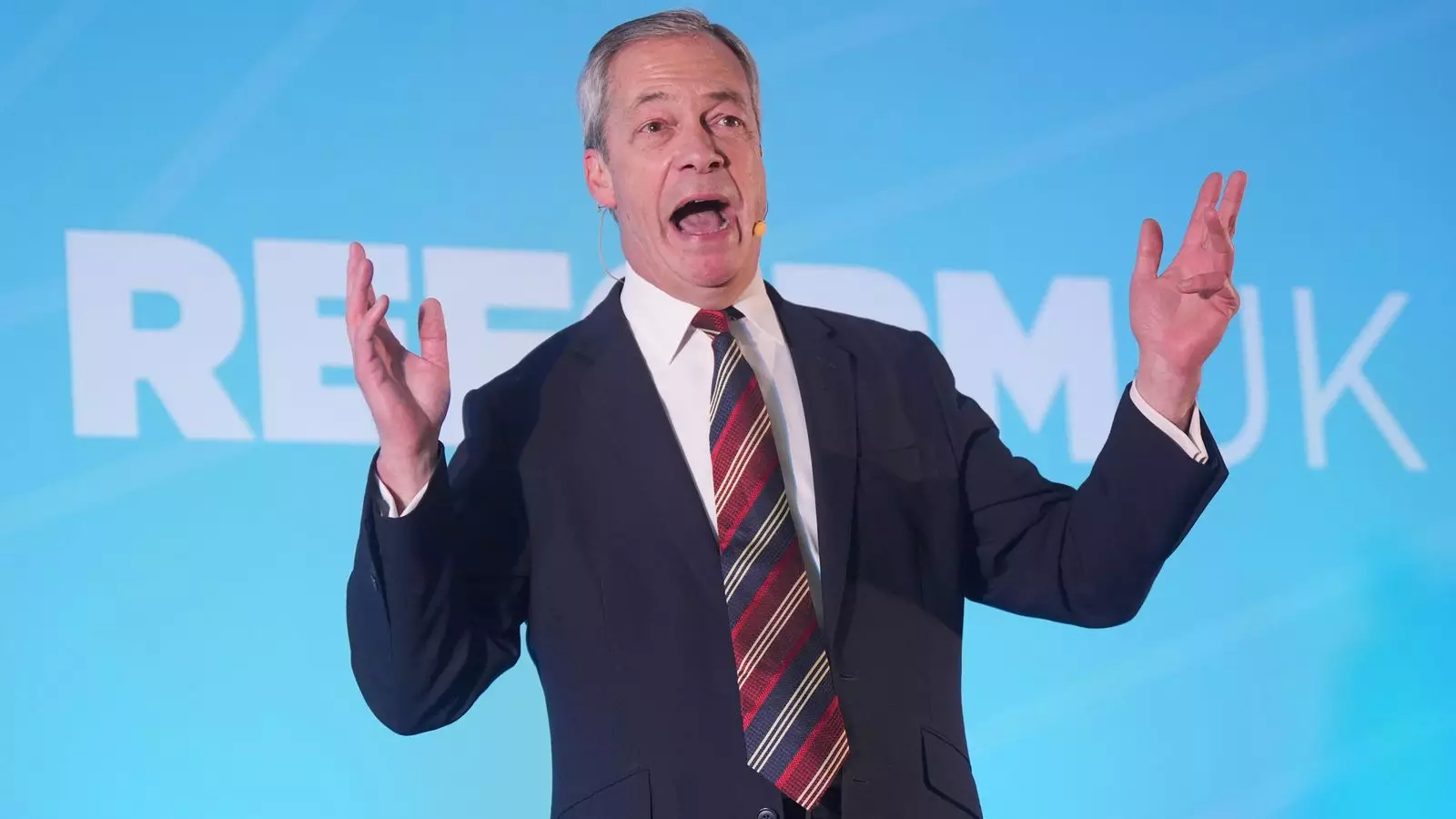In an environment where political ideologies often clash, the recent remarks made by billionaire entrepreneur Elon Musk regarding Nigel Farage have reignited tensions within the Reform UK party. Farage’s steadfast assertion that he won’t be “pushed or bullied” forms the crux of his defense following Musk’s dismissal of his leadership capabilities. This public critique adds an intriguing layer to the dynamics of political leadership and the expectations placed on those in charge. Musk’s assertion—rooted in his perspective of the Reform Party’s needs—carries weight, given his stature in the tech world, yet it also raises questions about the influence of non-political figures on political affairs.
Despite the gravity of Musk’s comments, Farage remains adamant about his resilience. Claiming a friendship with Musk tempered by frank exchanges of views, he asserts his independence in decision-making. This highlights a fundamental aspect of political resilience—how leaders handle external pressures, especially from influential figures. It takes a nuanced understanding of personal and political relationships to navigate these waters effectively. Farage’s dismissal of Musk’s views as merely a momentary opinion rather than a definitive judgment reflects broader themes of political loyalty and agency.
One of the overlaying themes in Farage’s statements is the importance of ideological purity within the Reform Party. Particularly contentious is his disagreement with Musk’s endorsement of far-right activist Tommy Robinson, whom Musk has referred to as a “political prisoner.” Farage’s rejection of Robinson’s association underlines a crucial aspect of party identity—maintaining a cohesive stance on controversial figures. By openly expressing that Robinson, currently serving an 18-month sentence for contempt of court, will not find a home in Reform UK, Farage sends a clear signal to both supporters and critics.
The boundaries of acceptable political discourse within the party are critical to its overall image and future. Farage’s comment that support for Robinson creates a “fundamental” disagreement reflects the ongoing struggle many political parties face in balancing diverse opinions while maintaining core principles. His rejection of alignments with individuals associated with extremist groups, such as the British National Party (BNP), signals a commitment to a particular political ethos—a strategy likely aimed at solidifying the party’s base while distancing itself from factions perceived as liabilities.
While the interpersonal dynamics between Farage and Musk may be strained, there remains an undertone of hope concerning potential financial support from the tech mogul. Farage expresses confidence that Musk, despite their disagreements, may still contribute to Reform UK, indicating a pragmatic approach to party funding. This aspect of political fundraising—where relationships are multifaceted and often transactional—reflects the broader reality of modern-day political maneuvering.
In the context of upcoming regional conferences, which Farage is utilizing to bolster grassroots support, the funding landscape emerges as a critical battleground. With Musk’s backing, even amidst controversies, the party might find a lifeline that enables it to extend its influence. The underlying significance of financial support in politics cannot be overstated, as it serves not just as fuel for campaigns but also as a reflection of viability and legitimacy in the public eye.
Apart from internal party dynamics, Farage’s remarks about the ongoing devolution plans presented by Labour’s government further unravel the complex fabric of contemporary British politics. His assertion that potential postponements of local elections amount to a “denial of democracy” reflects a deep-seated concern about political accountability and governance. By framing the situation as a tactic reminiscent of authoritarian regimes, he successfully positions himself as a defender of democratic values.
The implications of these statements resonate beyond party lines, as they touch upon broader issues of electoral integrity and citizen engagement. Farage’s contention that local governance structures are being manipulated for political advantage showcases the ongoing tensions between central authority and local self-determination—a fundamental debate within modern democracies. His rhetoric targets not only rival parties but also challenges the validity of governance models that could limit participation.
In addressing the reluctance of some Reform members to communicate their support openly, Farage dismisses the notion of toxicity surrounding the party. His assertion of “institutional bias” against non-leftist viewpoints pinpoints a crucial aspect of current political discourses—the battle over narratives. The political landscape today is heavily shaped by public perceptions and media portrayals, leading to a climate where expressed opinions may bear significant risk.
As Farage navigates these hurdles, he exemplifies a leader focused on characterizing The Reform Party as a legitimate alternative. The task ahead involves not just expanding the party’s support base, but also reshaping the dialogue around right-wing politics in the UK. Ultimately, the interplay of individual convictions, relationships with external influencers, and the stamina to challenge broader narratives will be decisive for Farage and Reform UK in the tumultuous political landscape ahead.

Leave a Reply